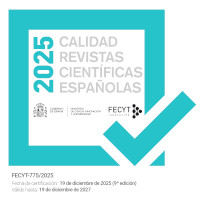Imaginarios de periodistas costarricenses sobre la inteligencia artificial y otras tecnologías digitales
DOI:
https://doi.org/10.56418/txt.17.1.2023.4Keywords:
imaginarios, inteligencia artificial, periodismo, redes sociales, rutinas organizacionales, tecnologías digitalesAbstract
This article analyzes the imaginaries that Costa Rican journalists have of various digital technologies, including artificial intelligence. Based on 20 interviews with journalists, this study demonstrates the existence of two imaginaries around technologies such as artificial intelligence, social media and algorithms: an imaginary that interprets the value of these technologies based on a "romantic" vision of journalism (in the sense of idealized); another imaginary that qualifies this ideal and prioritizes concerns of a more generational nature. By examining these two imaginaries and how they materialize in journalistic practice, this article allows us to understand that the appropriation of artificial intelligence is not uniform or universal. The meaning of technologies such as AI varies based on logic that links the technological with variables of another nature, such as professional and personal trajectories, as well as organizational practices, cultures and routines.
Downloads
References
Boczkowski, P. J., y Mitchelstein, E. (2013). The news gap: When the information preferences of the media and the public diverge. MIT Press.
Boltanski, L., y Thévenot, L. (2006). On justification: Economies of worth. Princeton University Press.
Brenes, C., Siles, I., y Tristán, L. (2023). Nuestras apps de cada día: 1er informe sobre el uso de plataformas digitales en Costa Rica (2023). CICOM.
Bulut, S., y Maraba, D. (2021). Generation Z and its perception of work through habits, motivations, expectations preferences, and work ethics. Psychology and Psychotherapy Research Study, 4(4): 1-5.
Carazo Barrantes, C. (2015). Periodistas y salas de redacción en Costa Rica frente a los retos del siglo XXI. Editorial de la Universidad de Costa Rica.
Costa, E. (2018). Affordances-in-practice: An ethnographic critique of social media logic and context collapse. New Media & Society, 20(10), 3641–3656.
Garro, L., Monge, A., y Solís, L. (2020). Ecosistema mediático en deuda con el pluralismo y la diversidad. En II Informe del Estado de la Libertad de Expresión y el Derecho a la Información. PROLEDI/ UCR. https://proledi.ucr.ac.cr/ii-informe-del-estado-de-la-libertad-de-expresion-en-costa-rica/
Jiménez Alvarado, O.M. (2022). Concentración mediática, convergencia y grupos económicos de la comunicación en Costa Rica. En III Informe del Estado de la Libertad de Expresión y el Derecho a la Información. PROLEDI / UCR https://proledi.ucr.ac.cr/iii-informe-del-estado-de-la-libertad-de-expresion-en-costa-rica/
Markham, A. (2021). The limits of the imaginary: Challenges to intervening in future speculations of memory, data, and algorithms. New Media & Society, 23(2), 382–405.
Mol, A. (2002). The body multiple: Ontology in medical practice. Duke University Press.
Patton, M. Q. (1990). Qualitative evaluation and research methods (2nd ed.). SAGE.
Pronzato, R., y Markham, A. N. (2023). Returning to critical pedagogy in a world of datafication. Convergence, 29(1), 97–115.
Sandoval García. (2008). The media in Costa Rica: Many media, scarce communication. In Lugo-Ocando, Jairo (Ed.), The media in Latin America (pp. 100–115). Open University Press.
Siles, I. (2020). A transnational history of the Internet in Central America, 1985–2000: Networks, integration, and development. Palgrave Macmillan.
Siles, I., y Boczkowski, P. J. (2012). Making sense of the newspaper crisis: A critical assessment of existing research and an agenda for future work. New Media & Society, 14(8), 1375–1394.
Sterne, P. (2022). AI enters the newsroom. NiemanLab. https://www.niemanlab.org/2022/12/ai-enters-the-newsroom/#:~:text=Large%20language%20models%2C%20such%20as,the%20quality%20of%20the%20writing.
Taylor, C. (2004). Modern social imaginaries. Duke University Press.
Vega Jiménez, P. (1990). El mundo en una página: un análisis de la primera plana de tres periódicos costarricenses 1950-1970. Anuario de Estudios Centroamericanos, 16-17(1-2): 139-153.
Published
How to Cite
Issue
Section
License
Copyright (c) 2023 Textual & Visual Media

This work is licensed under a Creative Commons Attribution-NonCommercial-ShareAlike 4.0 International License.
























